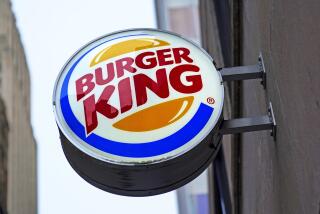Tobacco Gives Closing Arguments
- Share via
ST. PAUL, Minn. — A cadre of top tobacco industry lawyers vigorously defended the conduct of their clients, maintaining in Thursday’s closing arguments at a high-stakes trial here that the nation’s cigarette companies had spent hundreds of millions of dollars trying to make their products safer. They also denied that the companies marketed cigarettes to children.
Philip Morris attorney Peter Bleakley, who led off for the major defendants, also argued that even if the defendants committed wrongful acts, Minnesota and Blue Cross/Blue Shield of Minnesota--which are jointly suing the industry for $1.77 billion in damages incurred treating sick smokers--failed to prove that any industry conduct led to increased health-care costs for either plaintiff.
The veteran trial lawyer stressed that even though a fundamental element of the plaintiffs’ case is that the cigarette companies perpetrated a vast fraud on the public over the last 40 years, the plaintiffs had failed to call a single witness to say he was fooled about the hazards of smoking.
Bleakley asserted that whatever the industry had said or done, it had been overwhelmed by a vast array of reports by government agencies about the dangers of smoking, resulting in 38 million people quitting smoking in the last 20 years.
In all, six industry lawyers spoke for seven hours at the conclusion of the highest-stakes trial ever faced by the $50-billion-a-year industry.
If the industry loses this case and is hit with large punitive damages, it could have a dramatic effect on congressional debate over the industry’s fate. It could even influence pending Justice Department decisions about whether criminal charges should be brought against tobacco firms and perhaps some of their executives and attorneys.
The shortest argument--a mere 15 minutes--was delivered by David Sasseville, a Minneapolis attorney representing Liggett Group who had never spoken at the trial before. Liggett settled last year with the state of Minnesota but not with Blue Cross/Blue Shield.
Sasseville had a clear theme--Liggett was the great exception, “the lone wolf,” that broke ranks with the other companies. He stressed that Liggett was the only major American cigarette maker that had not participated in a 1953 industry meeting that the plaintiffs claim was the start of a conspiracy to suppress the hazards of smoking.
He reminded jurors that Liggett Chief Executive Bennett LeBow had testified about why the company is the only U.S. cigarette firm that has agreed to disclose all the ingredients in its products.
Finally, he stressed that in the mid-1950s, when the conspiracy allegedly started, Liggett was the nation’s third-largest cigarette company, with 20% of the market while today it has less than 2%.
“If Liggett was a co-conspirator,” Sasseville concluded, “it was a very poor one.”
Thursday evening the two sides resumed negotiations toward a possible settlement.
Related story: A1
More to Read
Sign up for Essential California
The most important California stories and recommendations in your inbox every morning.
You may occasionally receive promotional content from the Los Angeles Times.













